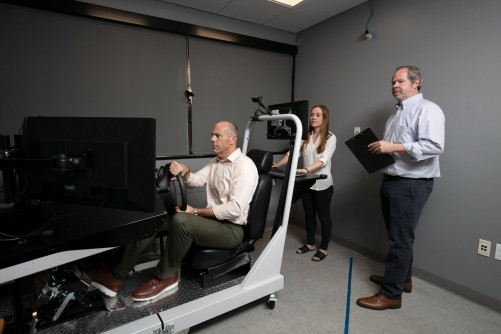Research conducted by scientists at the Center for Medicinal Cannabis Research (CMCR) at the University of California San Diego School of Medicine reveals that frequent cannabis users do not exhibit impairments in driving performance after abstaining for at least 48 hours. This study, which is the largest of its kind to date, provides significant insights into how cannabis use affects driving abilities and raises important public health considerations.
As cannabis becomes increasingly legal across the United States, with approximately three-quarters of Americans residing in states where it is available, understanding its impact on everyday activities like driving is crucial. About 15% of Americans currently use cannabis, highlighting the need for clear guidelines regarding its use and implications for public safety.
Study Details and Findings
The research team analyzed data from two studies to arrive at their conclusions. The first study was a randomized clinical trial that evaluated the driving performance of 191 cannabis users who had not consumed the substance for at least 48 hours. The second study focused on a subset of the most frequent users from the first study, comparing their performance with a smaller group of non-users.
Participants were assessed using a driving simulator designed to evaluate potential impairment. The findings indicated no significant differences in driving ability between those who regularly use cannabis and the non-using comparison group. Kyle Mastropietro, a graduate student in the San Diego State University/UC San Diego Joint Doctoral Program in Clinical Psychology and the study’s first author, stated, “We did not find any relationship between driving performance, cannabis use history, or time of abstinence, nor blood THC concentrations.” He noted that even the most intensive users, who reportedly smoked an average of four joints per day, performed similarly to non-users during the abstinence period.
Thomas Marcotte, Ph.D., a professor of psychiatry at UC San Diego and the senior author of the study, emphasized that the results challenge the notion of solely relying on blood THC concentrations as indicators of impairment. He pointed out that THC can remain detectable in blood for days or even weeks after consumption, complicating enforcement of cannabis-related driving laws.
Implications for Public Health and Legislation
The study’s findings have significant implications for how cannabis use is legislated and regulated, particularly concerning driving. Unlike alcohol, which has established biological tests to evaluate impairment, cannabis lacks a standardized measure for intoxication. This gap in regulation can lead to challenges in enforcing driving laws and maintaining public safety.
Despite the study’s contributions, the authors acknowledged that it was conducted in a controlled laboratory setting, which may not fully represent real-world driving conditions. The non-user comparison group was also relatively small, which could affect the robustness of the findings.
Published in the journal Psychopharmacology on September 6, 2025, this research was partially funded by the State of California through Assembly Bill 266. The authors have declared no conflicts of interest, underscoring the integrity of their work.
As society navigates the complexities surrounding cannabis use, these findings provide a clearer understanding of the effects on driving performance, contributing to the ongoing conversation about public health and safety in an era of increasing cannabis legalization.






































































